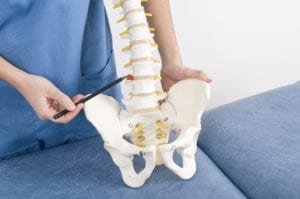Medical evidence of differences in recurrence rates between the two procedures is conflicting. This controversy probably has to do more with patient selection and the experience of the surgeon than any inherent superiority between these two approaches. However, there are real differences in the anesthesia required, the degree of postoperative pain, and healing time before a patient may resume physical exertion. Laparoscopic repair can offer a quicker return to work and normal activities with decreased pain for some patients.
No single treatment approach is right for everyone, and inguinal hernia repair is no exception. Patient circumstances may limit one’s choice. For example, a child should not have a mesh repair because the mesh will not grow with the child. An adult who has undergone previous open surgery in the lower abdomen may be a poor candidate for laparoscopic repair of an inguinal hernia because of scar tissue.
I have performed several thousand hernia repairs since completing my surgical training and began performing laparoscopic repairs 18 years ago. Over the years, I have come to favor that approach for the majority of older adolescents and adults because I believe it is a better choice. Nevertheless, I continue to perform open repairs for about 25% of adult patients, for various reasons including scarring from prior abdominal operations, high risk for general anesthesia, and patient preference.
Ideally, a patient with an inguinal hernia should consult with an experienced hernia surgeon who performs both types of operations, in order to get a balanced opinion regarding the optimal approach for their particular situation. If you or a loved one has a hernia, we at Advanced Specialty Care would be happy to evaluate you and give you our honest opinion on whether and how it should be repaired. Advanced Specialty Care provides hernia repair surgery and other general surgery services at offices in Danbury and Ridgefield in Fairfield County Connecticut.
By Joseph R. Gordon, MD FACS

